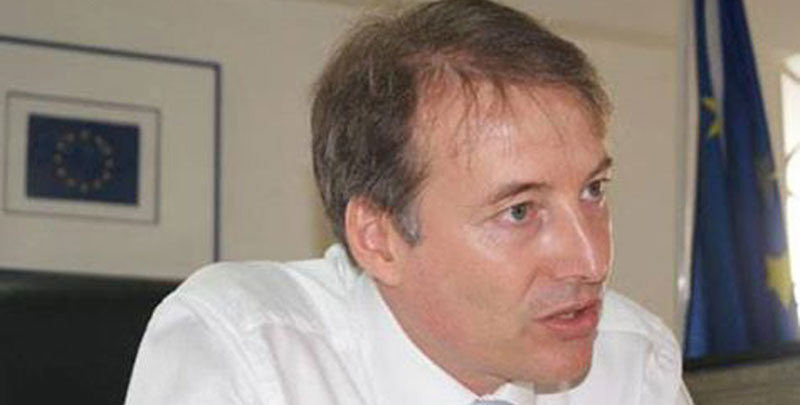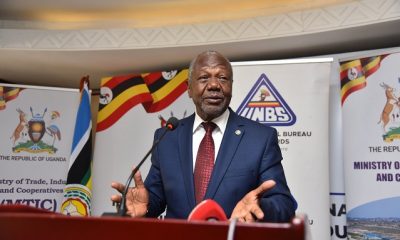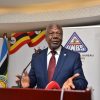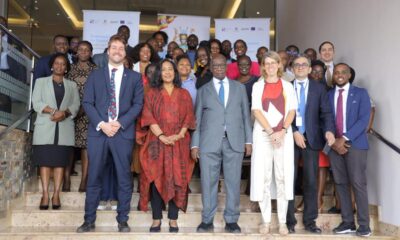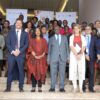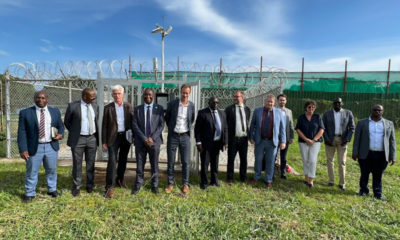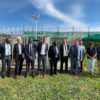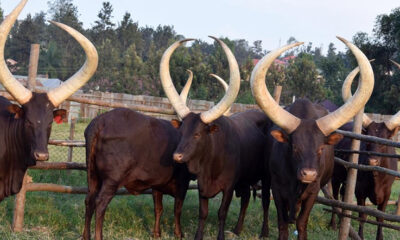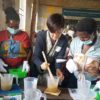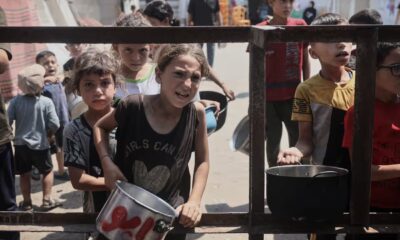Editor
Europe marks 60 years of Treaty of Rome
EU in Uganda oversees many Development Projects
Two significant milestones mark this year’s Europe Day of May 9. Firstly, a celebration of these two events marks the overall extent of development cooperation between EU and Uganda over the years.
In March 1957, six European states agreed to create the European Economic Community (EEC), the forerunner of today’s European Union (EU). They were: then-West Germany, Italy, the Netherlands, Ireland, Belgium and Luxembourg – who agreed to “lay the foundations of an ever closer union among the peoples of Europe”.
Institutions were created to do this; a European Parliament, a Commission, a Council of Ministers and a European Court of Justice. The EEC aimed to expand trade, industry and manufacturing, while working towards a unified Europe. This was following the chaos created by the Second World War as nations looked to protect and enhance their economies, raise living standards and reduce a further risk of conflict.
In time, more and more nations became members through EU enlargement. Today there are 28 member states; prior to Britain (Brexit) quitting it in two years’ time. That will revert the number to 27; and it will undermine what Winston Churchill had spoken of the need for a “United States of Europe”.
The remaining member states adopted the Rome Declaration, which calls for enhanced cooperation and unity. “We, the Leaders of 27 Member States and of EU institutions, take pride in the achievements of the European Union…. We have built a unique Union with common institutions and strong values, a community of peace, freedom, democracy, human rights and the rule of law, a major economic power with unparalleled levels of social protection and welfare.”

Young Ugandans (L-R), Najibu Ssonko, Esther Katami and Aminah Nakawungu, share the EU social media accounts, on the campaign run by the EU in partnership with Plan International
One of those institutions with a connecting welfare to Uganda is the Erasmus Programme. The EU is the marking of 30 years of the Erasmus – European Community Action Scheme for the Mobility of University Students – Programme. It was created to facilitate students from other counties to study in universities in EU countries. Erasmus creates closer links between higher educational institutions.
Last week, while congratulating Ugandan students who are going off to Europe to study under this progamme, the EU Head of Delegation in Uganda, Mr. Kristian Schmidt, said, though a small number of Ugandans have won the scholarships to study in Europe, he would like to see more Ugandans applying.
The Erasmus scholarships programme is the biggest study scholarship funded by the European Union. It spends over €16 billion euro on it annually, 17 percent, or about two billion Euro for scholars outside the European Union, including Uganda.
National Indicative Programme
Though significant, this is a small fraction of EU’s overall assistance, which is multi-facetted and covers all aspects of relations. In 2016 Uganda trade with EU, it spent €25 million with Uganda. But the wider aspect of technical cooperation for development is under the 11th European Development Fund (EDF) National Indicative Programme (NIP) 2014-2020. NIP will provide €578 million for Uganda’s needs and aspirations.
Overall EU’s technical cooperation in Uganda is multi-facetted. The overall goal also is that as it is helping to address Uganda’s economic challenges, it refers issues to the United Nations sustainable Development Goals (SDGs). Uganda’s2017/18 infrastructure budget framework proposes a 10% budget increase, benefiting mainly infrastructure, such as roads in the Albertine oil region. Funding for the security sector also increases. The EU supports the proposed budget to be compatible with its infrastructural needs.
Through the EDF, the EU is providing Uganda support in grants in the following areas: Agriculture and Food Security; Transport Infrastructure; and, Good Governance. These are under the EU’s Generalized Scheme of Preferences (GSP) initiative for all its imports, except arms. EU remains Uganda’s main exporting market with a share of 26% of total exports. At 83%, agricultural products dominate imports. This is mainly coffee, cocoa, tobacco, fruits, vegetables and cut flowers. Fisheries are at 12% tailed by industrial products at 5%.
The agriculture sector will be boosted by Yield Uganda Investment Fund, a public and private investors’ fund arranged by Deloitte Uganda and Pearl Capital Partners Uganda (PCP). An initial Euro12 million has been made availed to provide much needed access to capital for small and medium agri-businesses where the majority of Uganda’s population is involved in.
Areas in infrastructure include solar, where Schmidt has inaugurated a solar energy, the 10 MW Soroti Plant, the biggest solar system in East Africa. Accordingly, with a national grid access rate less than 20% in Uganda it presents an attractive investment markets for solar PV and small hydro power.
The EU is also active in the Support Programme for Refugee Settlements in Northern Uganda (SPRS-NU) project of Euro10 million for refugees’ resettlement in such areas as Adjumani, Arua and Kiryandongo districts.
Civil Society in Uganda
Another area where there is an EU thrust is the setting up of EU’s Civil Society in Uganda Support Programme (CUSP programme is based on a recent study by Swedish International Development Cooperation (SIDA)m, which has noted that ordinary Ugandans are compelled to “rely on their own capacities to overcome multiple, unrelenting and intersecting dimensions of poverty”. The Government, while of the view that the CSO role should be service delivery, recognizes the role of civil society in monitoring development programmes,
It aims to get the Ministry of Finance, Planning and Economic Development (MoFPED) working with local NGOs on improving accountability. EU will facilitating the a better organized, networked and financially robust sector through its EDF NIP and of the implementing development partners of: the Democratic Governance Facility (DGF); European Instrument for Democracy and Human Rights (EIDHR); Civil Society Organisations and Local Authorities (CSO-LA); the Institutional Capacity Building for the Transport Sector in Uganda Programme; and, the Development Initiative for Northern Uganda (DINU); the Gender Development Partners Group (GDPG); Justice Law and Order Sector (JLOS); and, the Accountability Working Group (AWG), as the major ones.
The Government will be involved through National Authorizing Officer (NAO), to oversee the relevant line ministries and the Bureau umbrella. The DGF will ensure synergies with cross-representation on steering committees of both programmes and regular high level discussions within the relevant EU fora.
This is a four-year initiative of EU-Uganda joint programming which has identified “Governance
Accountability”, as a priority area. The majority of EU Member States (MS) are highly active. A basket fund financed by Austria, Denmark, Ireland, Netherlands, Sweden and the UK and Norway has been set up.
GIZ will be responsible for the overall management of all components. A project steering committee will be established for this project and it will include the National Authorising Officer, the relevant line ministry (ies) of the Government of Uganda, the EU, Germany, a representative from the Democratic Governance Facility (DGF), representatives from at least three CSO umbrella organisations and representation from the local authorities’ fraternity.
This steering committee will meet once a quarter during the first year of the project and later on once in six months and on an ad hoc basis as is required.
Uganda is also a beneficiary of the European External Action (EEAS), a diplomatic service to promote its values and interests around the world.
Core values of the EU are to respect the rule of law, defend human rights and promote democracy.
In Uganda, its Political Section works to support the efforts of Ugandan partners to proceed with electoral reforms, to defend human rights, promote good governance and fight corruption. It also supports the Government in its efforts to contribute to peace and security in the region.
Comments



